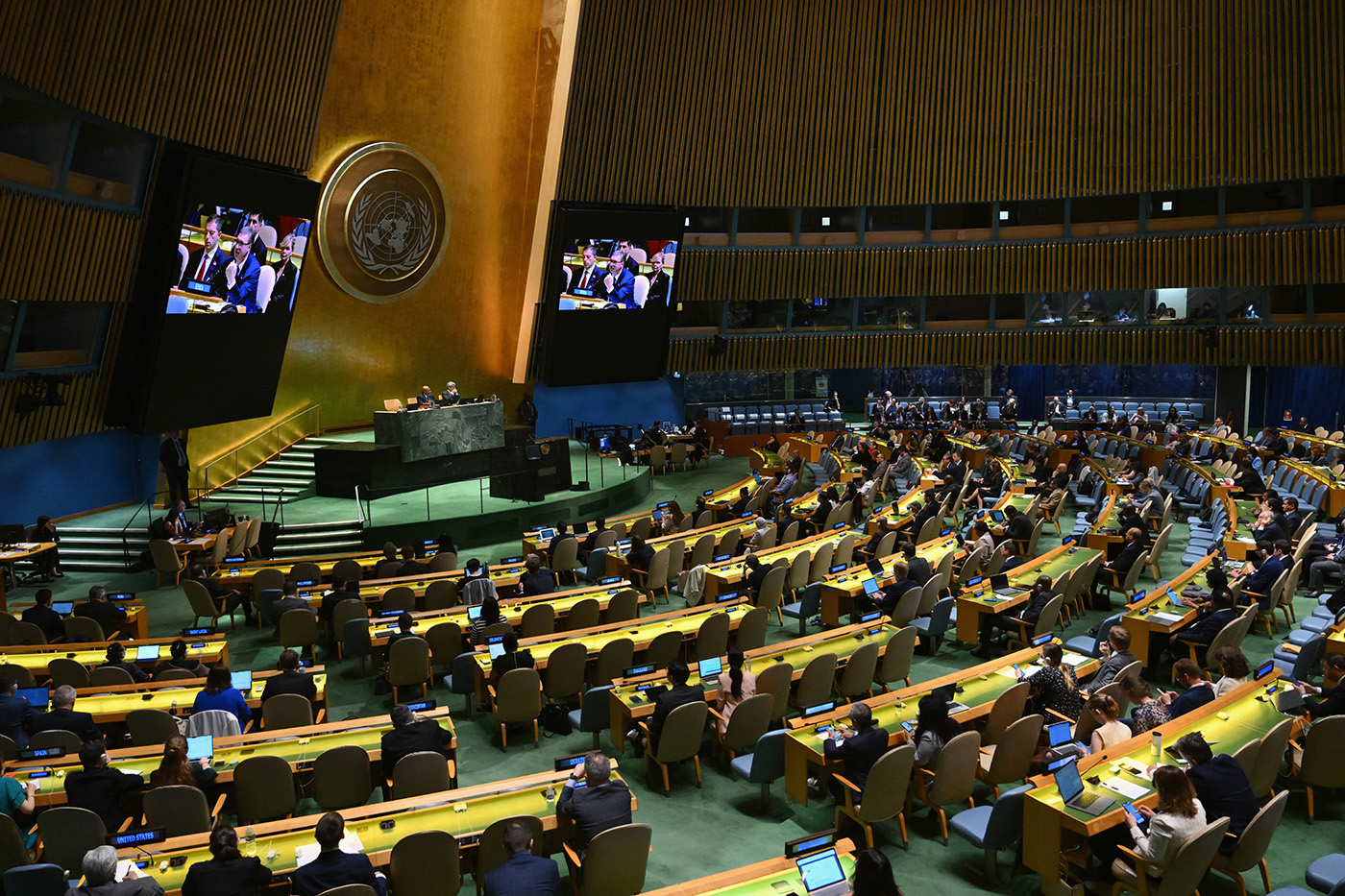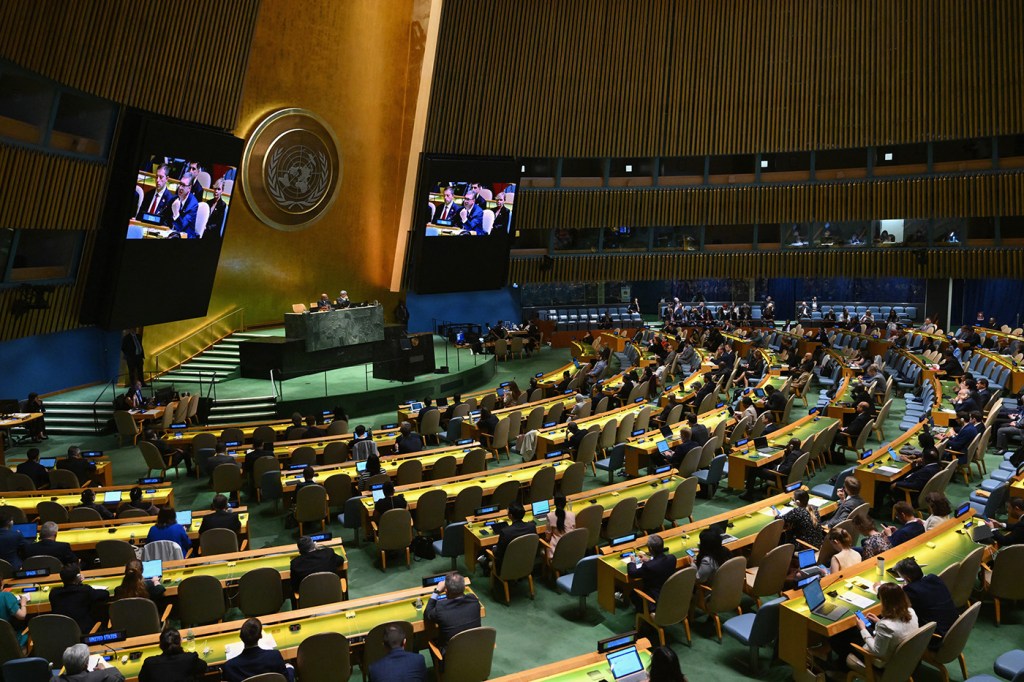Will international law prevail in the wars in Ukraine and the Gaza Strip?

In an increasingly multipolar world, does competition between the great powers threaten to undermine international law? Experts from the Northeast hope for consistent accountability in Ukraine and the Gaza Strip.

This report is part of ongoing coverage of the war between Israel and Hamas. Visit our special page for more information on this topic.
The ongoing wars in Europe and the Middle East are putting the international legal system and the liberal international order itself to a test like never before.
These wars caused many civilian casualties and raised doubts about the effectiveness of international humanitarian law, a branch of international law that deals with the protection of civilians in armed conflicts.
In a recent issue of Foreign Affairs, one observer argues that so-called martial law has “broken down” as the number of civilian deaths in Gaza rises to as high as 35,000 by some estimates. In Ukraine, more than 10,000 civilians have been killed in Russia’s ongoing war, according to Oxfam International.
In a world system with shared rules for warfare, accountability looms wherever war atrocities occur. But accountability in the international system “is a long process,” says Mai’a Cross, professor of political science, international affairs and diplomacy and director of the Center for International Affairs and World Cultures at Northeastern University.
A common criticism of international humanitarian law is that there is no enforcement to hold heads of state and government accountable. The International Criminal Court – the judicial body responsible for prosecuting war crimes, crimes against humanity, genocide and crimes of aggression – is one of the main mechanisms for upholding international law. While ICC officials have issued arrest warrants for Russian leaders, including Russian President Vladimir Putin, it must rely on national police forces to carry out these arrests.
In addition, the US, Russia and China have not signed or do not recognise the authority of the ICC. And it is the US, Russia and China – along with the UK and France – that have veto power in the United Nations Security Council, the part of the UN responsible for maintaining peace and security abroad. The UN has sought to limit the veto power of permanent members, with some diplomats noting that Russia’s veto power in the wake of its war in Ukraine amounts to a “weapon of hatred and war”.
“There are talks about reform, but of course there is a lot of resistance – not least from the permanent members themselves,” says Fiona Creed, associate professor at Northeastern University and former executive director of the United Nations Association of Greater Boston.
In an increasingly multipolar world marked by the rise of superpowers such as Russia and China, some observers say rivalries between the great powers threaten to undermine international law as a framework for promoting human rights and protecting civilians.
“It is a historical fact that nations have violated international law – and these violations are not uncommon,” says Creed. “The question I ask is: Is it possible to strengthen the UN system and other international organizations to really take the adoption and enforcement of international law to a new level?”
Despite all its shortcomings, the current system – which includes not only the UN, the ICC and other non-governmental organizations, but also organizations such as the European Union and NATO – is, according to experts, a testament to cooperation and common goals rather than disunity, particularly with regard to the wars between Russia and Ukraine and between Israel and Hamas.
“I think the liberal international order is actually built on consensus, although the United States, because of its status as a superpower, has to play a greater role in maintaining that order,” Cross says.
This solidarity has led to enormous international pressure on countries that defy international law, Cross says. This is demonstrated not only by the shared condemnation of the atrocities in Ukraine and Gaza, but also by the precedents set by the International Criminal Court’s attempts to prosecute violations in both conflicts.
In the absence of clear enforcement mechanisms, this “pressure” serves several purposes: It can help prevent future atrocities. It can lead to collective support for international sanctions by organizations like the EU. And it can strengthen social movements that then apply pressure at the national level, says Zinaida Miller, a professor of law and international affairs at Northeastern University.
She says the ICC alone cannot prevent wars and was not created to do so.
“It would be too much to expect a court to be able to resolve or prevent conflicts on its own,” says Miller. “I don’t think criminal courts can do that, and we place particular emphasis on these international bodies because they administer justice in cases of conflict.”
Recently, the ICC announced that it would seek arrest warrants against several high-ranking Russian military officials. Putin has already been charged with war crimes in connection with the alleged abduction of Ukrainian children. The international body is also seeking arrest warrants against Israeli Prime Minister Benjamin Netanyahu, his defense minister and Hamas leaders for war crimes related to the ongoing war between Israel and Hamas.
Since its creation in 1998, the court has tended to focus its investigations on African countries (in 2021, 10 of its 14 investigations involved Africa). Miller sees the recent series of arrest warrants related to Russia, Israel and Hamas in part as an attempt to correct that bias.
“Within the four walls of the ICC Prosecutor’s Office, we are witnessing growth and development within the court,” says Miller.
Of course, it seems “rather unlikely” that ICC officials would actually arrest Putin, Miller says. The same could be true for Netanyahu and others involved in the Gaza war, since the defendants would have to travel to a country that has ratified or signed the Rome Statute, the international treaty that created the ICC.
Miller says that arrest warrants against Israeli officials would nevertheless impose “a heavy legitimacy cost on Israel. The very act of demanding arrest warrants confirms Israel’s grave violations of international law,” and issuing warrants would significantly restrict the ability of these officials to travel.
Despite all the hope for the international humanitarian system, world leaders remain concerned about the state of international relations and are calling for more funding and reforms to address the growing threat of conflict. “We must come together to urgently transform and strengthen our multilateral institutions,” UN Secretary-General António Guterres said last month.
“The Security Council is stuck in these conflicts,” says Miller, “but that doesn’t mean the UN can’t make a difference in other areas. And there are many other actors in the international system that can continue to work for fairer solutions.”




